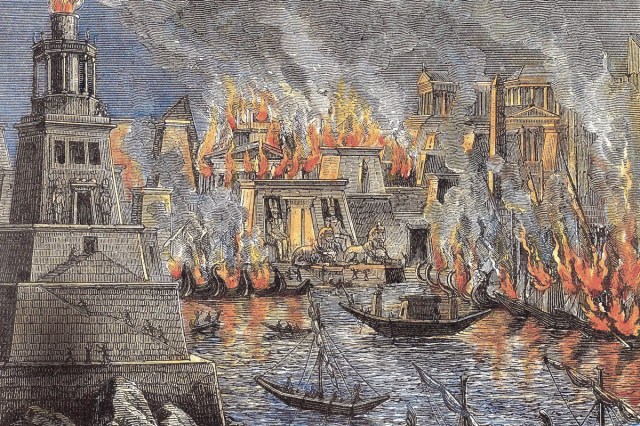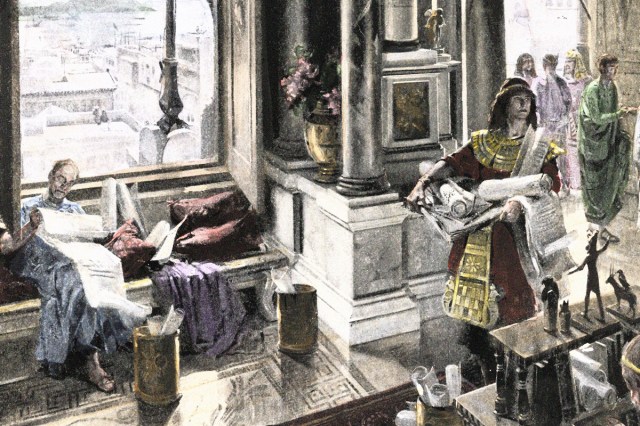What Knowledge Did We Lose With the Library of Alexandria?
The famous story of the burning of the Library of Alexandria, and the centuries of knowledge that went up in flames along with it, is often told as a single dramatic event — but that’s somewhat misleading. While fires did occur, the library wasn’t destroyed all at once. Rather, it succumbed to a slow decline over centuries. Its destruction is now shrouded in myth and mystery, but what is certain is that the Library of Alexandria was one of the largest and most significant collections of the ancient world, and its eventual loss was an intellectual tragedy.

The Fabled Burning
Likely established during the reign of Ptolemy II in the early third century BCE, the Library of Alexander formed part of a larger research institute in Alexandria, Egypt, called the Mouseion (meaning “shrine of the Muses,” the origin of the word “museum”). This great undertaking represented humanity’s most ambitious attempt to collect and preserve human knowledge.
The library flourished for some six centuries, but by the fifth century CE it had all but ceased to exist. The infamous — and often overstated — fire occurred during Julius Caesar’s occupation of Alexandria in 48 BCE, when he ordered his troops to set fire to enemy ships in the harbor, possibly causing some collateral damage to the library. But Caesar certainly didn’t burn down the whole library. In reality, the collection’s slow demise was due to various factors, many of which were tied to Alexandria’s centuries-long decline as an intellectual center. The library’s books were sold or destroyed, its buildings were eventually razed or converted into churches or mosques, and, in the end, the library simply faded away.



















